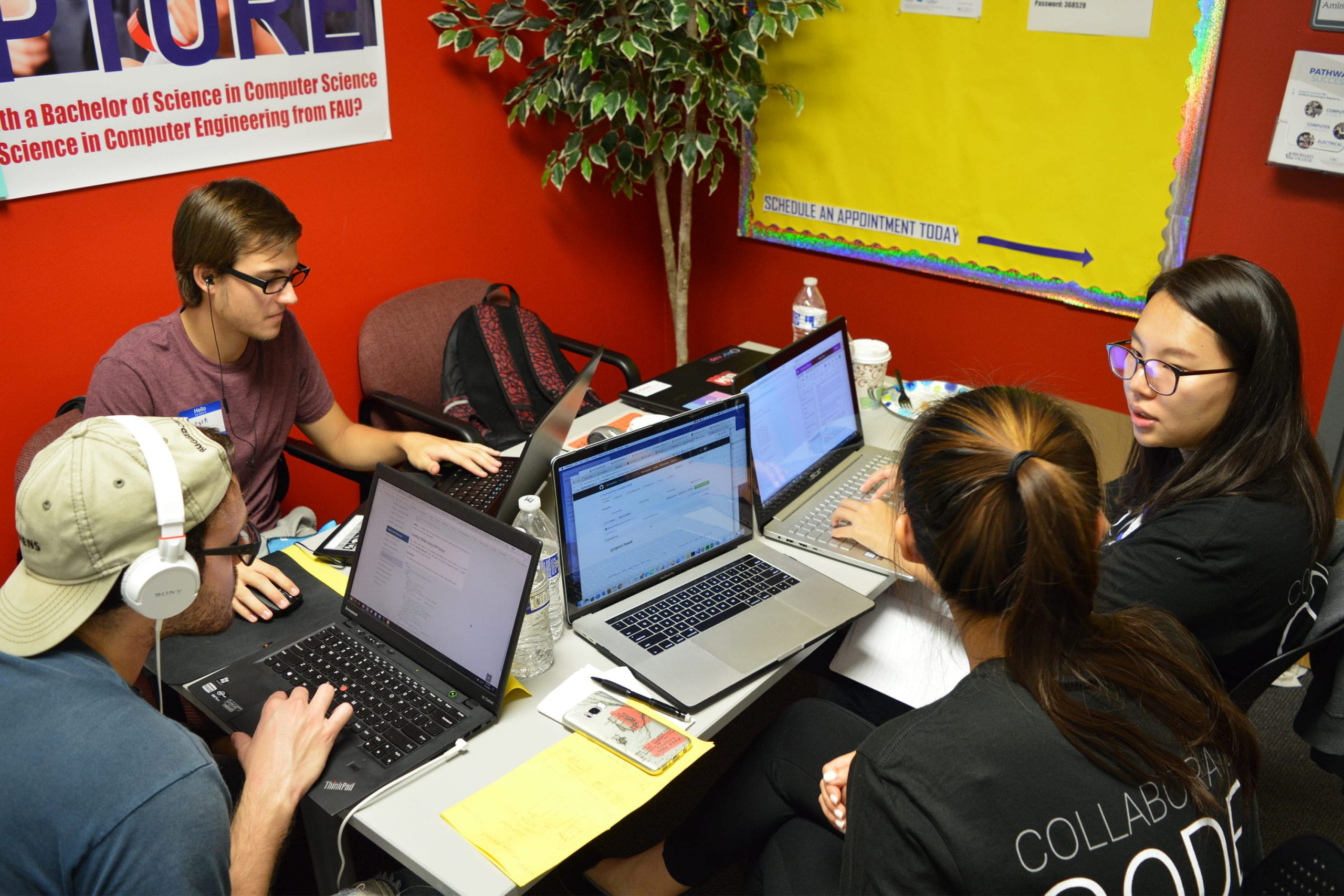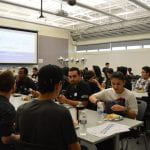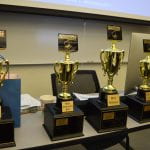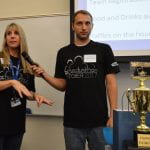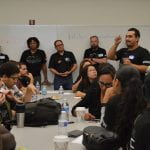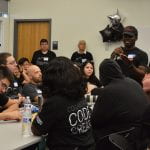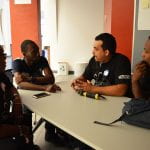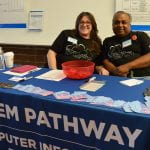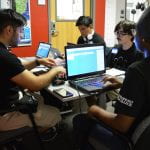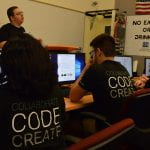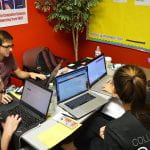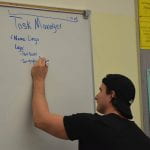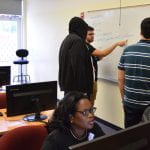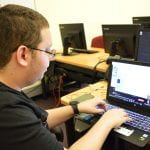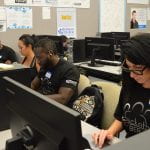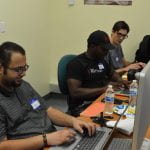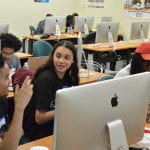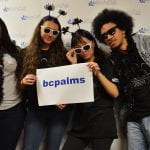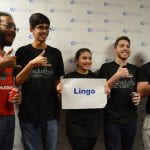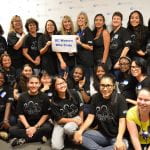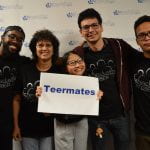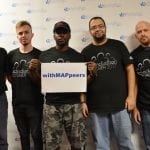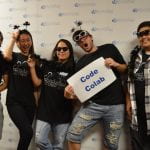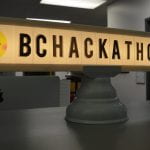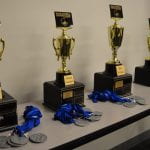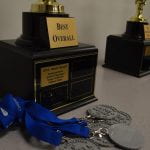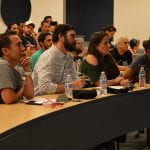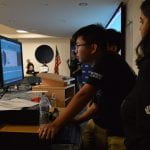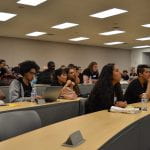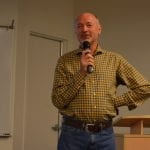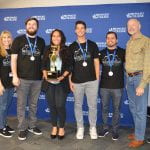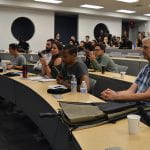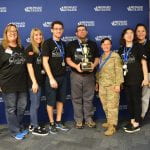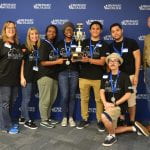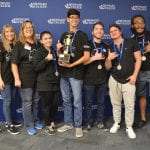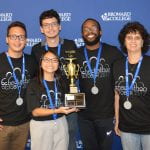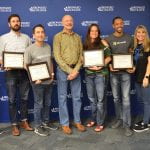Sara Varela
Editor-in-chief
For the third year, Broward College hosted its annual Hackathon, where students are encouraged to create new software in 24 hours or less. In its latest edition, the BC Hackathon attracted students from FIU, FAU and Palm Beach State College to participate alongside BC students, conforming 13 teams of five students each.
Four judges from different companies evaluated each group’s presentation and awarded five trophies in the categories of Best Overall, Code for a Cause, Most Innovative Idea, Best Presentation and Crowd Favorite. Judging criteria included elements such as innovation, complexity and implementation.
The group What’s this? created an app of the same name, which scans food and tells you its ingredients, and took home the award for Best Overall. The group was conformed by Manuel Peña, Tangy Frederick, Adrian Silva, Cecilia Constantine and Jorge Ortiz.
Over the past decade, Hackathons have been an instrument for companies looking to inspire their own programmers. However, over the past few years, Hackathons have also incorporated an academic element, and colleges and universities are using them to inspire students in and outside the STEM fields to develop innovative software and work on a wide skill set.
“The goal is to bring together the student tech community so that people can have fun creating and working on teams, and develop their tech, presentation and communication skills,” said Michelle Levine, program manager of Computer Programming.
Gustavo Cordido, a BC student majoring in Computer Science and who’s participating for the first time, says that the Hackathon is a way to put himself and his skill set to the test.
“I think is going to help me out a lot and learn how everything works and also get to know how to manage developing under pressure,” he said.
Levine, who was the driving force behind the creation of the BC Annual Hackathon three years ago, explains that events like these “increase the confidence of the students” and admits that students may “learn more in those 24 hours than in a whole semester of class” due to the fast-paced characteristic of the hackathons.
Robert Davis, program manager of the Computer Accelerated Pipeline To Unlock Regional Excellence (CAPTURE) program, builds on that idea.
“The hackathons provide an environment for collaboration and a level of personal development that I don’t think you can get anywhere else,” said Davis.
However, hackathons’ most valuable characteristic, according to both the hosts and field experts, is its 24-hour turnaround time. They agree that students will benefit the most from learning how to work in highly stressful environments on a set, short amount of time.
“In the professional world, especially in technology, you have to be able to pick up a new technology quickly and sometimes you will have to spend late nights to learn something new and be able to develop something meaningful out of what you learn,” said Brent Lewis, a software engineer at Microsoft and BC alumni, who participated as a judge.
“To be able to learn something new, play around with it, and actually develop something that can actually be useful in the real world is invaluable,” adds Lewis.
But ultimately, it’s the students who can tell how the hackathon helps them.
“This is a great opportunity that Broward College is providing for any student, not necessarily related to the STEM fields, and I think it’s very useful and a lot of fun,” said Cordido.
